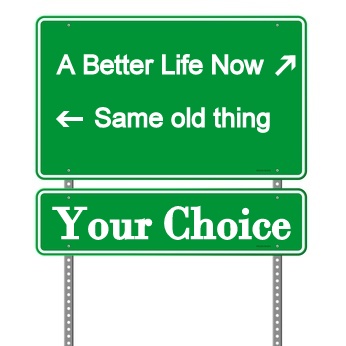Happiness 1st Institute approaches employee engagement, change management, positivity training, resilience building, stress reduction, suicide prevention, and human thriving at the root cause level. We begin by helping participants see that negativity—regardless of the reason—harms the person feeling negative emotion. Science demonstrates the negative effects of chronic stress on our bodies, minds, and behavior. When we appreciate something, our level of stress is low. When we do not like something, it creates negative emotion in our body, which is an indicator of stress.
Encouraging positive thinking directly can lead to resistance from preconceived ideas and beliefs that make close-minded participants reject the ideas, so we don’t work that way. Instead, we help participants understand filters that work below the level of their conscious mind to determine what information is passed to the conscious mind. Numerous practical examples anyone can relate to are used to gain buy-in and highlight how our conscious minds show us a filtered reality. We build a strong case for the fact that the way the filters are programmed has a significant impact on whether our life goes well or not.
At that point we introduce tools participants can use to change the programming of their unconscious filters. Just a little experimentation with the tools demonstrates their power to improve life experiences without requiring the experiences to change. Improvement in emotional state creates intrinsic motivation to continue using the tools because using them comes with inherent positive feedback.
We create a back-door to the subject of positivity because the audience understands a number of things that make them less defensive of views they may have held for decades. The goal is to value growth and learning above having been right in the past so that new ideas can be nurtured. They will have enough information to know the best way to approach every area of life to increase their personal happiness and resilience and decrease their stress and relationship conflicts. They will understand their ability to consciously choose aspects to focus on and will be motivated to choose the aspects that feel best.
Human Thriving
Although there are differences, our program could be described as Appreciative Inquiry on the personal level. The benefits of positivity are clear and universally desired outcomes. Helping individuals see that the price they have to pay for those desirable outcomes is finding perspectives that feel good makes the case for the desired outcomes very strong.
Our approach is multi-pronged and includes:
- Developing increased motivation to attain and sustain positive emotions.
- Understanding that the only approach that supports maintaining a positive emotional state
- Lowering resistance to being wrong in the past by heightening appreciation of being right now and in the future, personal growth, and continuous learning.
- Significant reduction of chronic stress, which is linked to numerous health problems including cancer, heart disease, diabetes, obesity, depression, suicide, and pre-term birth (Disparate outcomes) as well as crime, addictions, and teen pregnancy.
- Techniques that help individuals increase self-esteem and self-worth
- Encouraging a growth mindset over a fixed mindset.
Results from our program that are inherent outcomes of the processes:
- Emotional Intelligence (EQ) automatically increases with use of the tools.
- Resilience increases.
- Increased sense of personal empowerment.
- Increased internal locus of control (less victim mentality).
- Increased intrinsic motivation to fulfill potential.
- Increased hopefulness about the future (optimism/positivity)
- Healthy self-esteem
- Increases persistence
- Increase goal-orientation
- Better Relationships of all types
For fifty years we have been being told to think positively and reduce stress to improve health and relationships, but the how has been largely lacking and when it has been provided, it’s been a weak, dose dependent method. The reason our techniques are so powerful is they go to the root cause of stress—habits of thought. The way situations are perceived makes the difference between whether they are perceived as a threat or an opportunity. Changing habits of thought (participants decide for themselves which supportive habits to develop) enables individuals to attain and easily sustain more positive mindsets, regardless of past patterns and experiences. The improved mindsets lead to fulfillment of more of their personal potential.
Contact us today to learn about upcoming classes or programs for your company, school, group, or religious institution. We can provide programs and educational sessions designed to meet your specific needs. Keynote speeches are available and educational cruises will be considered.

